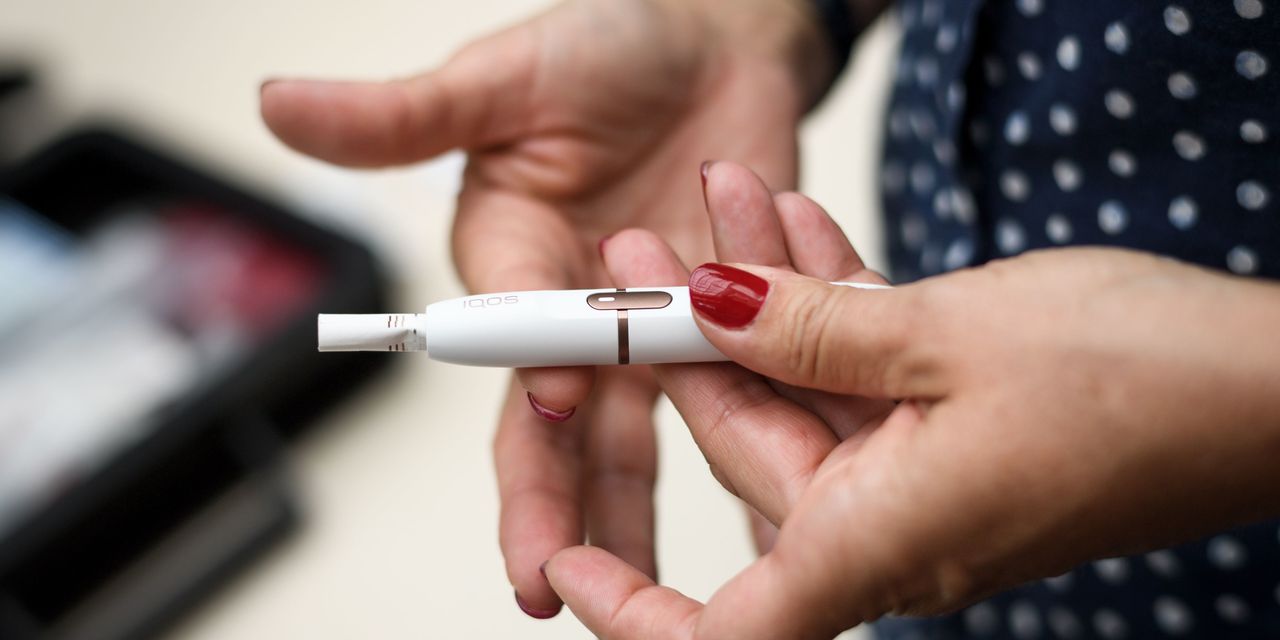
Less risky nicotine products like heated tobacco sticks were meant to help cigarette companies stay out of court. Instead, they are causing a spike in patent lawsuits.
In September, the U.S. International Trade Commission ruled that Philip Morris International PM -0.24% and Altria MO -0.04% must stop imports of IQOS heated tobacco sticks due to a patent dispute with R.J. Reynolds Tobacco, which is owned by U.K.-listed British American Tobacco. The case is now in review and can be appealed. But in the worst-case scenario, IQOS will be banned from the lucrative American tobacco market.
This would have less impact on the product’s owner PMI than on Altria. The owner of the Marlboro brand in the U.S. has a licensing agreement to distribute IQOS in the country, which could potentially contribute up to 15% of sales by the end of 2023, according to estimates from brokerage Jefferies.
Manufacturers are spending more time fighting like this, as the search for cigarette alternatives intensifies. Between 2005 and 2010, patent lawsuits with tobacco firms on both sides of the dispute averaged two a year in the U.S., according to data from analytics firms MaxVal and LexisNexis. These cases usually involved the big firms cracking down on smaller copycats. Since 2015, when the industry sharpened its focus on smokeless products, the annual tally has risen more than 10-fold.
Philip Morris and BAT are furthest ahead in their shift to smoke-free technologies, with respective targets to get more than half and one-fifth of net revenue from less harmful products by the middle of the decade. They are also at each other’s throats the most. The two have a patent dispute pending in Japan, another key market for smokeless products. And although September’s U.S. ruling went in BAT’s favor, the maker of Newport cigarettes has recently lost disputes against its rival in Poland, the Czech Republic, Romania, Bulgaria, Greece and the U.K.
SHARE YOUR THOUGHTS
Can the tobacco industry revamp its image? If so, how? Join the conversation below.
One reason why tobacco firms are warring is simply because there is more intellectual property to defend. In the past, tobacco companies may have patented cigarette papers, or their high-speed manufacturing know-how. But e-cigarettes and heated tobacco sticks have more technology in their design than combustible smokes. Philip Morris filed 1,300 patents in 2020, for example, up from 170 in 2016.
BAT has been the most litigious major tobacco firm in the U.S. over the past five-or-so years, filing 35 patent lawsuits. But it is still far behind PMI in shaking up its portfolio. The company spends £350 million a year, equivalent to roughly $480 million, on research and development related to smoke-free products—around a third less than PMI’s annual average since it first began pouring cash into cigarette alternatives in 2008. This is reflected in the two companies’ valuations. Shares in Philip Morris trade at 14.5 times projected earnings, double its rival’s multiple.
Hyperactive patent attorneys can only do so much for BAT’s flagging valuation. A more generous innovation budget might be a sounder investment.
Heard Stock-Picking Leaderboard
Write to Carol Ryan at [email protected]
Copyright ©2021 Dow Jones & Company, Inc. All Rights Reserved. 87990cbe856818d5eddac44c7b1cdeb8








